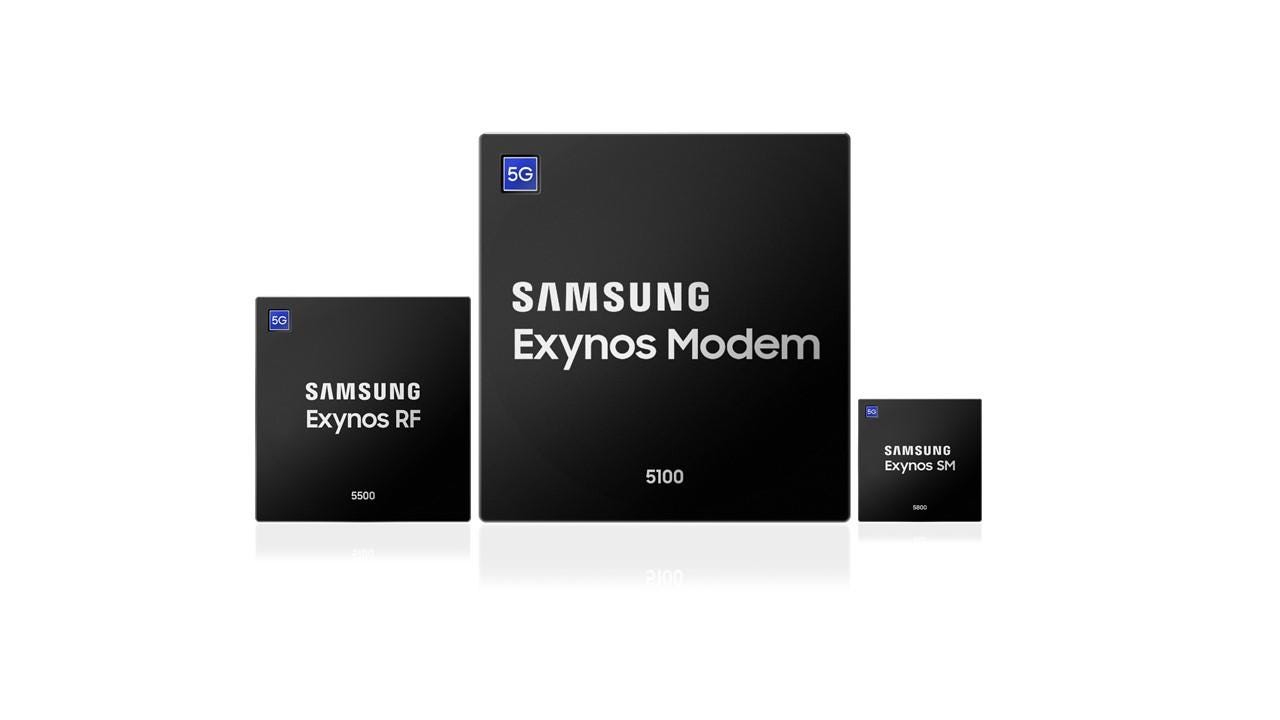Samsung begins mass production of its own 5G chips


Samsung has commenced mass production of its 5G modems.
Samsung Electronics has started mass-producing its 5G chips, the company has announced.
Among the company's new chip offerings is the Exynos Modem 5100, which contains a 5G multi-mode chipset; it is the same chipset that is used to power the Galaxy S10 5G, which became available for sale in South Korea as of Wednesday.
The model, unveiled in August, is the world's first 5G modem to be compatible with the 3GPP's 5G New Radio (5G-NR) standard.
Mass production for its single-chip radio frequency transceiver, the Exynos RF 5500, and supply modulator solution, the Exynos SM 5800, have also started, Samsung said. These technologies also power Samsung's flagship 5G phone.
The Exynos RF 5500 has 14 receiver paths for download, 4x4 MIMO (Multiple-Input, Multiple-Output), and a higher-order 256 QAM (Quadrature Amplitude Modulation) scheme for data transfer in 5G networks; and the Eyxnos SM5800 is 30% more power efficient than previous offerings.
The three chips all support 5G-NR sub-6-gigahertz (GHz) spectrum and legacy radio access technologies.
Samsung's leadership has been aggressively pursuing dominance in 5G to get ahead of rivals such as Qualcomm in chips and Huawei in wireless equipment.
For Galaxy S10 5G devices sold abroad however, some will use Qualcomm's X50 chip as a modem instead.
The boss of Samsung's System LSI business, which produces logic chips such as processors and modem, previously told ZDNet that 5G presented the company with opportunities it could not miss.
While the South Korean tech giant is the world leader in memory semiconductors, it has traditionally fallen behind rivals such as Intel and Qualcomm in the area of modem chips.
Its network business, which supplies wireless equipment, has also vowed to secure 20% market share by 2020.
Related Coverage
Samsung and Universal collaborate in HDR10+ content
Samsung Electronics and Universal Pictures Home Entertainment will collaborate on HDR10+ content, the companies announced, as the South Korean tech giant continues to woo content producers into pushing the next-generation video standard.
Korean telcos use Galaxy S10 pre-orders to compete for initial 5G subscribers
SK Telecom, KT, and LG Uplus are going all out to lure their first 5G subscribers with the pre-order of Samsung Galaxy S10 5G going on sale on Friday in South Korea.
Samsung and KT achieve 1Gbps speed on 5G commercial network
KT's 5G network will be ready for use in 85 cities across South Korea, including Seoul, by the end of the month. This includes 5G service coverage throughout various major national highways and high-speed railways.
Samsung ships first 28-nanometre eMRAM
Samsung says its first commercial embedded magnetic random access memory (eMRAM) has writing speeds that are a thousand times faster than eFlash.
Samsung produces 1TB eUFS memory for smartphones (TechRepublic)
The new one-terabyte embedded Universal Flash Storage (eUFS) 2.1 -- which is enough storage for 2600 minutes of UHD videos -- will likely pack the upcoming Galaxy S10 with the largest internal storage...